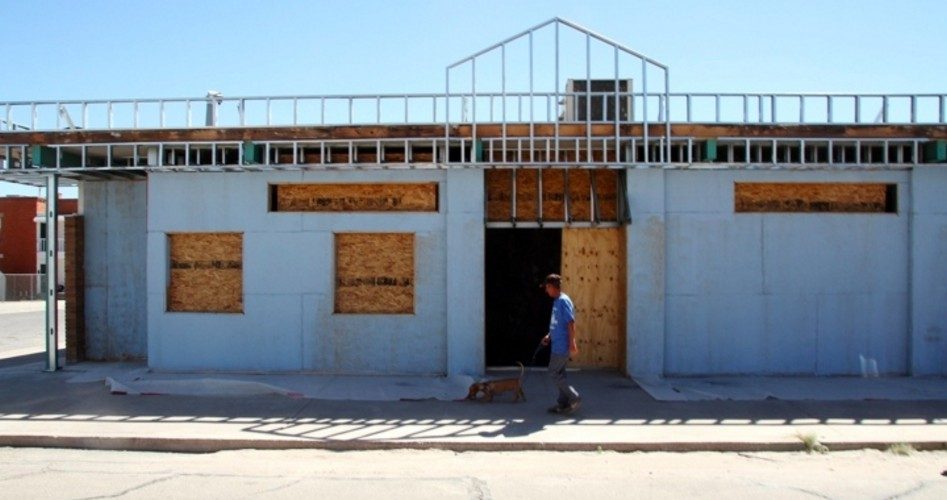
Over a dozen abortion clinics in Texas will be able to stay open and others will be able to reopen following the U.S. Supreme Court’s October 14 ruling putting on hold key sections of a state law requiring that clinics performing abortions to be certified as ambulatory surgical centers, and that abortionists have admitting privileges at a local hospital. The High Court ruling blocks the state from enforcing the ambulatory surgical requirement while a legal challenge by pro-abortion forces winds through lower courts.
In August a federal judge ruled that the ambulatory surgical centers requirement was unconstitutional and blocked its enforcement. But a federal appeals court decision earlier this month lifted the lower court’s injunction, prompting the Supreme Court to step in and issue its ruling blocking the state from enforcing the law.
While the High Court ruled last November in favor of the portion of the law requiring abortion doctors to have admitting privileges at local hospitals, its latest decision waives that requirement for at least two clinics whose managers insisted their clinics needed to stay open.
When the law went into effect, more than a dozen facilities across the state were forced to close because the could not — or would not — meet the two requirements designed to protect women seeking abortions from sub-standard facilities. The 6-3 ruling, which was opposed by Justices Scalia, Alito, and Thomas, allows clinics to commence abortions for the foreseeable future.
Abortion proponents, who reap millions of dollars from the killing of pre-born babies, were ecstatic at the ruling, using the Supreme Court decision as an opportunity to take politically motivated jabs at the pro-life groups that led the fight to protect mothers and babies.
“I’m delighted that there has finally been some justice dealt this state,” Ginny Braun of Houston’s Routh Street Women’s Clinic told the Houston Chronicle, adding that her abortion business would “go forward from today.”
Nancy Northrup of the Center for Reproductive Rights,which filed suit against the law on behalf of a number of Texas abortion clinics, declared the High Court decision a “tremendous victory” for Texas women. “This fight against Texas’ sham abortion law is not over,” she said. “HB2 was designed to gut the constitutional protections of Roe v. Wade and half of the state’s clinics remain closed.”
Cecile Richards of abortion giant Planned Parenthood weighed in on the ruling, saying that her group, which stands to lose millions of dollars in lost abortion profits should the pro-life law ultimately stand, were witnessing “the terrible impact these restrictions have on thousands of Texas women who effectively no longer have access to safe and legal abortion. We’re relieved that the court stepped in to stop this, and we hope this dangerous law is ultimately overturned completely.”
Spokeswoman Melissa Conway of Texas Right to Life, which has been at the forefront of the pro-life movement in the state, said in a statement that the group “recognizes the magnitude of today’s ruling by the U.S. Supreme Court as a temporary path of access to big business abortion services. While we find it unfortunate that the women of Texas remain unprotected against predatory and subpar abortion mills, HB2 is still slated to be heard on merits by the 5th Circuit.”
Casey Mattox, senior counsel for the conservative legal advocacy group Alliance Defending Freedom, noted in a statement that the fight to protect women and pre-born babies from the predatory abortion industry is far from over. “Texans have the freedom to prioritize women’s health and safety over the bottom line of abortionists, and this good law affirms that,” he said after the ruling. “The Supreme Court’s decision only temporarily and partially prevents the Texas law from going into effect while the 5th Circuit finishes hearing the case.”
Mattox said that while the High Court’s ruling was a disappointment, “it should cause no great alarm. The state’s requirement against cut-and-run abortionists remains in effect for all but two abortion facilities. The restriction on abortions after 20 weeks on unborn children who can feel pain was never challenged and remains in effect today. Likewise, the limitations on chemical abortions up to seven weeks’ gestation and prohibiting abortionists from sending women home alone to abort have been upheld and remain in effect. We remain confident that the entirety of Texas’s law will ultimately be upheld.”
Photo shows closed abortion clinic in El Paso, Texas: AP Images


